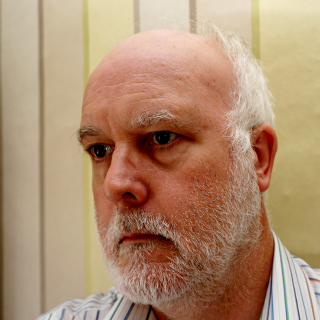TITLE // HACKING THE BRITISH WAY: THE BRITISH HACKING SCENE OF THE 80s AND THE EARLY 90s
LANGUAGE // ENGLISH
LEVEL // PADAWAN
PLACE // GANDALF ARENA
SCHEDULE // 19/08/2016 // 16:00 – 17:00
ABSTRACT //
In the 1980s the UK experienced its own microcomputer revolution. Before 1980 the only affordable way to own a computer was to build one from a kit and these needed skill and patience to build. In 1980 this “hobbyist” approach changed with the release in rapid succession of the Commodore Vic 20, the homegrown Sinclair Z80 and soon the improved ZX81. The Acorn Atom was affordable and could be networked using Acorn’s Econet interface. With more computer manufacturers appearing each month amd the BBC providing free lessons and sponsoring the Acorn BBC Micro British teenagers were soon computer literate with their own computer and a burning desire to do something, anything, with their new skills.
SHORT BIO //
Stephen was born before the era of the personal computer. His father was a computer engineer who worked on the large mainframe designs of the 1950s. Stephen longed to own a computer but, unable to afford hundreds of thousands of pounds sterling, he was happy to be a hobbyist playing with simple electronic circuits. At The University of Leicester he studied Genetics and for the first time was able to use a computer for the large numbers of calculations required. Leicester was an early pioneer of what is now bio-informatics. Stephen continued his studies in computing taking a Masters degree in computational biology at the University of Manchester. At this time Clive Sinclair introduced the first affordable computers for sale in the UK. Stephen seized the opportunity to learn more about computing buying his first computer in 1980 – a Sinclair ZX80 built from a kit. As with many young people of the era he experimented with communications, building his own computer interfaces from designs published in “Wireless World” magazine and was an early user of networked systems, starting in the 1970s with the Northern Universities’ Academic network.
In common with many young people of that era he also explored the security aspects of computer systems and pursued both ethical and not entirely ethical hacking using university systems late into the night.
Stephen Joined a Swiss-Italian pharmaceutical company in the 1980s and became a clinical researcher processing clinical trials data. He became an authority on the ethical processing and anonymisation of personal data for medical research. In 1992 Stephen established his own consultancy which he runs to this day, providing advice on computer security and the ethical processing of bulk personal data.
CONTACTS //
